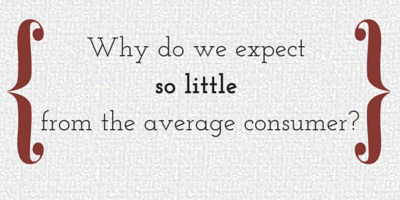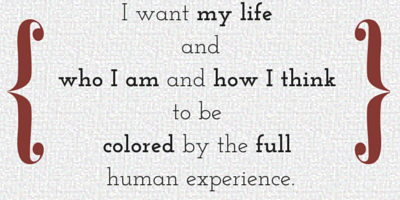Categorizing the Human Condition – Re-defining Who We Think We Are

Contributed to CBC Diversity by Ann Dye.
One of the most frustrating arguments I see made so often in the ongoing diversity dialogue is an expressed concern by publishing professionals (in various departments) that books spotlighting diverse characters (whether racial diversity, sexual diversity, or gender diversity, on book covers or as lead characters) will naturally have an ingrained niche appeal, and won’t be as accessible to the broadest reader.
To that I say: “Why do we expect so little from the average consumer?”
“Why do we assume that the natural response from adults who don’t share a commonality with a diverse character in any respect aren’t hungry to expand their horizons a bit through their nighttime reading?”
Maybe I’m too much of an optimist.
Let’s back it up for a second. Personal share time.
When I was in college at Cornell, I joined a faith-based organization (part of that whole figuring out who I was thing) where out of 150+ members; I was one of two Caucasian members. 99.9% of the organization was composed of Asian American students. One of my suitemates in college dragged me with her to the first meeting for company, honestly not having any idea of this particular cultural makeup to the group.

I still vividly remember walking into the room for the very first time and feeling something I have never felt before – like I stood out. And not in a way that was in any way self-conscious or nerve-wracking, but in a way that was very, very aware of how I was different. There was a sort of initial discomfort that took hold that quickly settled into a sort of unique-feeling self-confidence I hadn’t experienced before. I was experiencing I think, for the first time, what it felt like to be in a situation as a naturally shy person where I couldn’t hide in the crowd; where I might be remembered in this setting with any opinions or thoughts I might share…and it was liberating.
I mention this only because it was one of the earliest examples of life putting me in a situation that is so very rare as a person not classified as traditionally diverse. My viewpoint was shifted in a wonderful way, putting my voice in a different context, while at the same time opening up my own receptive experience to others who offered me different perspectives on a common transitional experience of faith in college. The friendships I made with particular individuals at that organization continue to be some of the most valuable connections I have in my adulthood.
In a broader sense, I share this to connect back to the important point within the diversity conversation that at our core, as humans, it is so, so important to value and tend to our basic, fundamental need to expand our horizons and force open our too-often closed views of the world. This applies to those of every facet of the diversity spectrum – all of us, in every part of the world, and every type of reader and consumer. So much conversation is had about why diverse books matter to those who are of the specified group discussed but, to me, what we need to also consider is how much these books and the opportunities they present to us matter to all of us in the ongoing emotional education of developing who we are as a society.

Speaking for myself, a quiet Cornhusker from Omaha, Nebraska, I could easily have stayed in my little corner of the world after high school. But…
I joined the publishing industry for a reason.
I came to New York City for a reason.
I kept returning to that organization in college for a reason.
I read books regularly from a variety of different authors about different subjects and different cultures for a reason.
I want my life and who I am and how I think to be colored by the full human experience. That experience won’t ever innately be represented solely by my upper middle class upbringing if I don’t immerse myself in worlds outside of my own.
Yes, of course there are those out there who don’t actively look to read or learn beyond what they know – and they’re the worse for it. But isn’t a major purpose of the creative output of literature to provide us all with worlds and people who we can’t find in our daily commute?
So to me, the assumption that the general reader won’t embrace culturally diverse stories is a knee-jerk, unambitious, and pessimistic viewpoint. I believe our society is capable of so much more if we simply push harder within our industry, which is so focused on expanding cultural currency through literature. And there are so many talented authors with so many interesting, diverse stories ready to do just that.
And I’m not ready to give up on us just yet.

